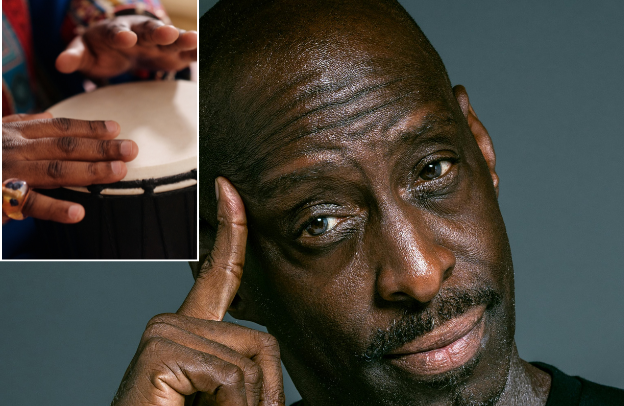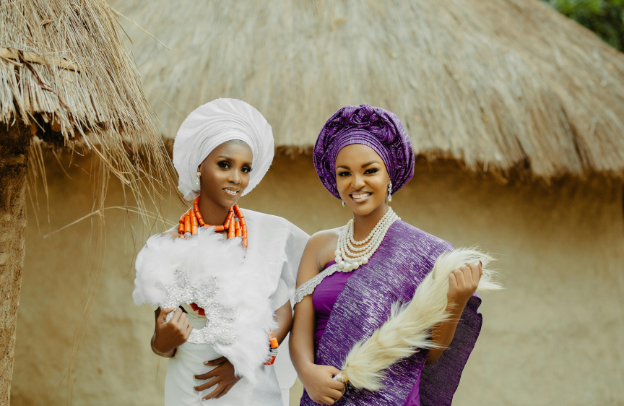Carlos, from Brazil to Badagry, Nigeria: The Drums That Called Me Home

Carlos had always felt the beat. In the rhythms of Candomblé ceremonies, in the sway of Bahia’s streets, in the steady pulse beneath his skin—it was there. But he never understood why it made him ache. Why, even in the vibrant soul of Afro-Brazilian culture, something still felt incomplete.
Learn How to Leverage Your Story through our Story To Asset Framework.
Then came the dream: drums echoing from across the ocean, calling him to a place he had never seen but somehow knew. The next day, after facing yet another act of quiet violence—a sneer, a slur, a reminder that his Blackness marked him as other in his own land—Carlos knew the dream wasn’t just a dream.
It was a summons. And so, he listened. He packed not just a suitcase, but generations of questions, and set his course for Badagry, Nigeria. He wasn’t just traveling—he was returning.
Day One – The Dream That Wouldn’t Let Go
Carlos awoke drenched in sweat, the sound of distant drums still echoing in his ears. In his dream, he stood barefoot on the edge of a wide ocean, the sky dark, the drums rising from beyond the waves like a heartbeat calling him back. That morning, he brushed it off. Dreams fade, life continues.
But then came the insult—sharp, cutting, casually delivered at work, a reminder that even in his own country, he was seen as other. Less. He held his breath, swallowed his rage, and said nothing. But that silence did something to him.
That night, the drums returned. Louder. Closer. Carlos knew then: it was time. Time to listen to the whispers in his blood. Time to trace the path his ancestors had walked in chains—from Nigeria to Brazil—and now, in reverse.
He booked a flight to Badagry.
Day Two – The Rhythm Beneath His Skin
Before the wheels touched the tarmac in Lagos, Carlos could feel it: that familiar rhythm, but older, rawer. In Brazil, the atabaques, the tall, wooden, Afro-Brazilian hand drum kept sacred time in the Candomblé temples, calling on the orishas. Here in Badagry, that same rhythm was in the wind, the soil, the very breath of the land.
He met with Yoruba priests and elders who welcomed him not as a stranger, but as a son returning.
They spoke to him in a language his spirit seemed to recognize. At a small shrine, an old priest pressed a cowrie shell into Carlos’s hand and said, “The gods remembered you. That’s why you came.”
Tomorrow, Carlos would dive deeper—not into history, but into spirit.
Day Three – Stone and Spirit
Carlos stood at the foot of the slave barracks, where walls still whispered names. He pressed his palm against the crumbling stones, eyes stinging. Inside, the air was heavy. In one dark cell, he saw scratch marks on the walls. He traced them with his fingers and felt a wave of nausea, grief, and awe.
Elders spoke of the “Point of No Return,” where the enslaved were marched to waiting ships. But Carlos wasn’t here for tragedy alone—he was here for truth. For resilience. For the unbroken spirit of those who endured.
Tomorrow, he would meet their descendants—those who remained, who kept the fire lit.
Day Four – Fireside Inheritance
Around the fire, Yoruba descendants sang songs older than memory. Carlos sat among them, watching, listening, slowly joining in. He recognized a chant his grandmother used to hum—he never knew what it meant until now. It wasn’t just a lullaby. It was a prayer.
You might also like Capturing Your Verona Memories: My Verona Journey Series, Part 9
They taught him sacred dances, shared bowls of egusi soup and kola nuts, and told stories that spanned continents. One elder said, “You are not lost—you were just far. We waited.”
For the first time in his life, Carlos felt held by a culture that had always been his.
Tomorrow, he would enter sacred ground—not as a tourist, but as kin.
Day Five – Rain and Rebirth
The sacred grove shimmered with mist, the trees heavy with meaning. Elders led Carlos through the rituals, chanting to the orishas for guidance and protection. Rain began to fall—not violently, but gently, as if the sky, too, was blessing him.
Carlos stood barefoot as the priests anointed his head with herbs and water. A drumbeat began, steady and slow, echoing the dream. The elder priest declared, “You are now initiated into remembrance. Walk in truth.”
Carlos wept—not from sorrow, but from wholeness. He came seeking connection and found rebirth.
Tomorrow, he would prepare to leave—but something sacred would stay with him forever.
Day Six – Packing Memory, Carrying Power
Carlos folded his clothes slowly, touching each item as if to imprint it with memory. The elders had gifted him a beaded bracelet and a carved symbol of Shango. “For protection,” they said, “and to remind you who you are.”
He looked out the window at Badagry’s quiet morning. The sun rose just as it had in Brazil, but everything felt different. Inside, he was rooted. Solid. Seen.
He had come to trace his ancestors. Instead, he found himself.
Tomorrow, he would fly back to Brazil—but he would not return the same.
Day Seven – The Drums Within
Back in Brazil, the air smelled of sea salt and street food. Carlos walked the familiar streets with new eyes. In his neighborhood, he gathered friends and family, sharing stories, showing them photos, teaching them the chants and dances he had learned.
He lit candles for the ancestors, placed his gifts on the family altar, and played the drumbeat he now knew by heart.
He wasn’t just passing on knowledge—he was continuing a legacy.
Carlos had gone to Badagry searching for belonging. He returned carrying power, memory, and purpose.
The journey wasn’t over.
It was alive.
Learn How to Leverage Your Story through our Story To Asset Framework.





